Evil plan would have been our 9/11
SPECIAL REPORT: Police believe this week’s alleged terror plot could have led to Australia’s most deadly attack yet, reveals Janet Fife-Yeomans.
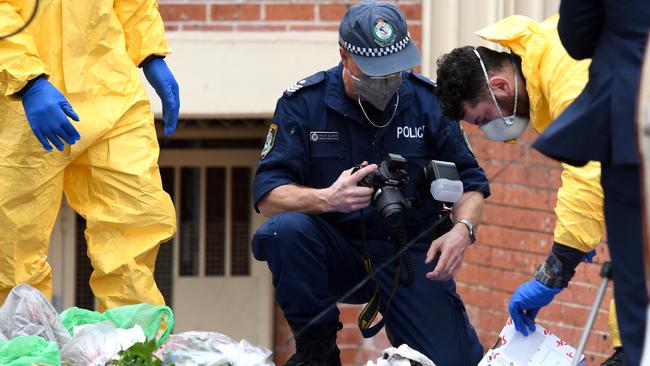
NSW
Don't miss out on the headlines from NSW. Followed categories will be added to My News.
- IS link to plot to bring down plane with explosive chemical device
- Counter-terrorism raids: Pair charged over alleged jet terror plot
THE chilling consensus after last week’s terror raids is that it’s the closest Australia has come to a major attack.
Incredibly, the Islamic State-ordered plot was almost successful not once, but twice.
Police will allege the passengers on one of the two direct Etihad flights to the Middle East out of Sydney on Saturday July 15 were to be the victims of a homemade bomb hidden in an everyday kitchen meat mincer. It was to be carried on in cabin baggage by an unsuspecting martyr.
The plan was evil and cowardly. Police believe the alleged jihadis were going to hide the device in the luggage of one of their own brothers — willing to send him to his death.
The world got lucky and the plotters pulled out at the last minute, despite having a fully operational improvised explosive device (IED) ready to go.
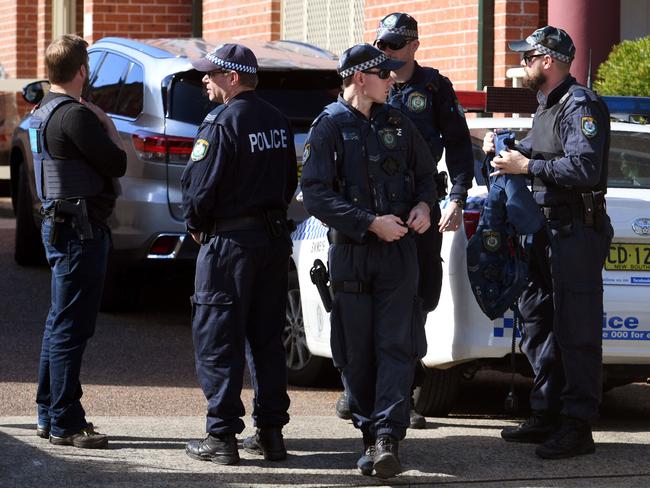
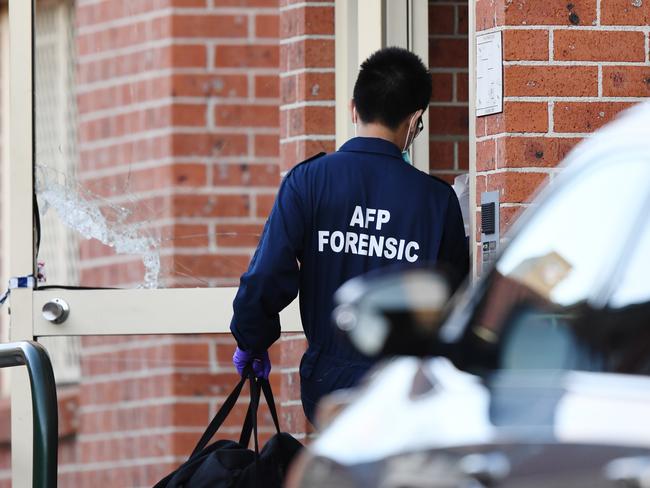
They realised the device was too heavy for carry-on luggage and got “cold feet”, according to one source.
The brother got on the plane, still not knowing what his own family had in store for him. He remains overseas.
But the plan was being honed, not shelved. Police claim they had hatched a fresh plan to build a deadly hydrogen sulphide bomb with a so-called “rotten egg gas” stink.
The first that counter-terrorism police learnt about the alleged revived plot, which was to target public transport with the gas device, was about 10 days ago.
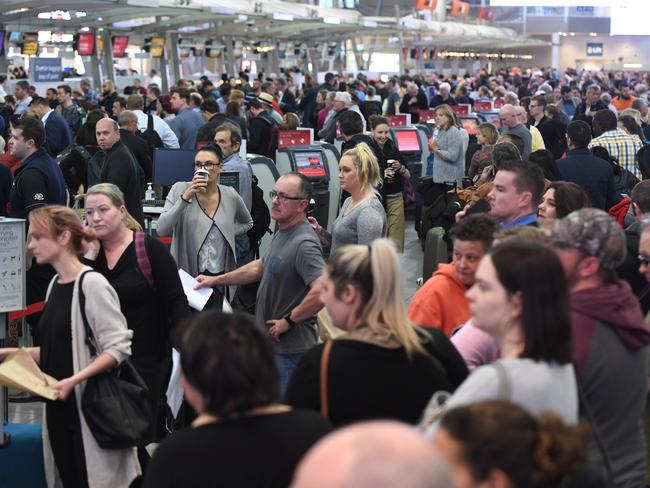
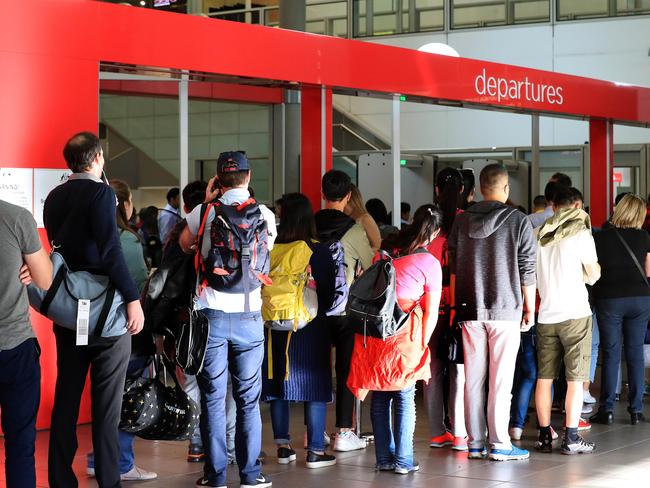
It was well after the fact of the first failed plot.
While they were concerned that the plotters had managed to stay under their radar, the “small piece of intelligence” that was picked up by foreign spies showed the system was working, at least this time.
Authorities were able to stop them allegedly having a second go. Justice Minister Michael Keenan did not elaborate yesterday but said every time they disrupt a terror plot, lessons are learnt.
The tip-off raced around the world through Australia’s Five Eyes partners, the intelligence-sharing alliance involving Australia, Canada, New Zealand, the United Kingdom and the United States. The UK has been given most of the kudos for the snippet of intelligence.
“You cannot wait ... because you can’t afford to let the criminal act happen”
When Prime Minister Malcolm Turnbull was briefed on the plot late on Wednesday July 26, he was told that the bombing was “imminent”.
Unlike recent lone wolf attacks around the world using knives, guns and rented trucks, this was a return to the planning and patience it took to stage the horror of 9/11.
Police claim a senior IS commander organised the IED components to be sent to Australia via international cargo from Turkey. The commander provided the DIY instructions to build the bomb.
The Sydney men police believed were involved were put under surveillance, but terror is a different criminal ball game.
Unlike robberies, murders and assaults, which are only detected and investigated after they have occurred, police had to weigh up when to move.
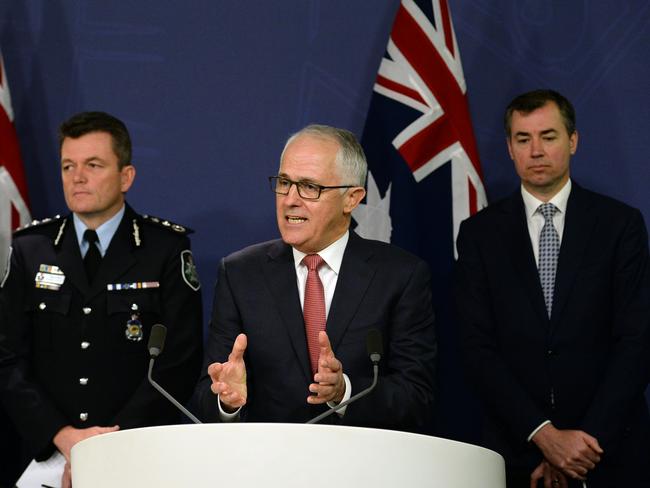
They wanted to wait to find out who, if anyone, else was involved — but they couldn’t afford to hang on for too long with the plan coming to fruition.
As NSW Police Commissioner Mick Fuller said this week: “Terrorism is very different to other crimes. You cannot wait until you have the perfect brief. You cannot wait until you have all the pieces of the puzzle because you can’t afford to let the criminal act happen.”
On Thursday, a meeting of the top-level National Security Committee ordered security to be stepped up at Sydney and other airports around the country.
While the men allegedly involved were not on the police radar, at least two were known to ASIO. Khaled Khayet, whose brother is an IS commander, had allegedly been questioned at one stage by the spy agency. Another, Khaled Merhi, has a cousin, Ahmed Merhi, fighting with IS in Syria.
It still remains murky how much information had been previously being shared with NSW Police.
One of the most sophisticated terror plots attempted on Australian soil
It was not the time to play politics but some observers pointed to how the new Home Affairs Department, which will combine ASIO, the Australian Federal Police, customs and immigration, could streamline communications between the agencies.
As NSW State Coroner Michael Barnes said after examining the response of all agencies to the deadly Lindt cafe siege in 2014: “It became apparent that there were a number of restraints to the free flow of information that could hinder ASIO’s capacity to discharge its functions.”
What those “restraints” are we don’t know, because the evidence regarding the spy agency’s operations was heard in secret.
With federal and state police monitoring the men in Sydney, in Canberra there were rounds of briefings involving security agency bosses, AFP Commissioner Andrew Colvin, NSW Police and ministers.
Coincidentally, on that Thursday and Friday the most senior NSW Police commanders were holed up at the Richmond police academy to workshop the implementation of new counter-terror strategies. On the table were the recommendations made by Barnes.
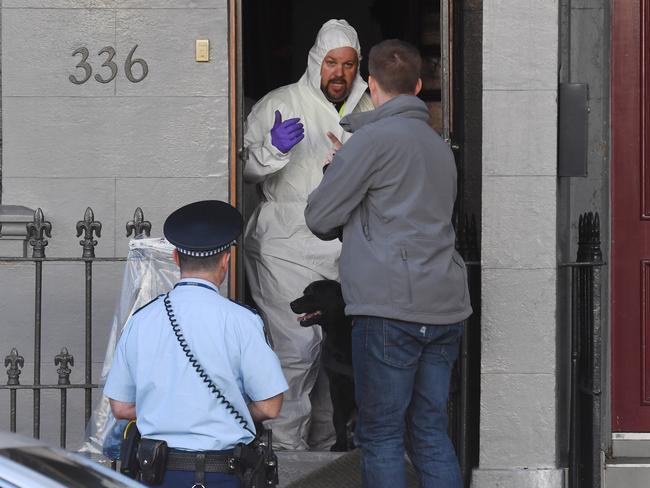
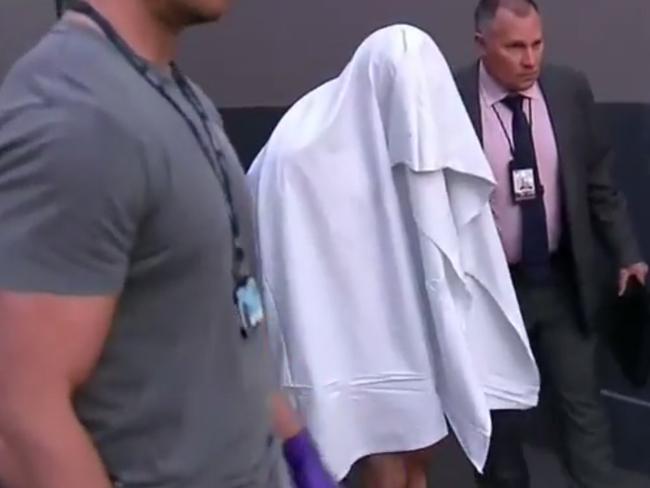
By last Saturday, the decision was made to move on the men because the situation was escalating.
In a co-ordinated operation, heavily armed counter-terrorism police raided six homes in Surry Hills, Wiley Park, Punchbowl and Lakemba. Four men were arrested with one, Abdul Merhi, 50, released without charge on Tuesday evening.
Khaled Khayat, 49, and his brother Mahmoud Khayat, 32, appeared via videolink at Parramatta Local Court yesterday charged with two counts each of preparing a terrorist act.
A third man, the Khayat’s brother-in-law, Khaled Merhi, continues to be quizzed by police and has not been charged. The fourth, Abdul Merhi, was released on Tuesday without being charged, after being cleared.
Police have confirmed that the plot was “one of the most sophisticated terror plots attempted on Australian soil”.
It terms of ambition it far outstripped any thwarted terrorist plan, apart from perhaps the Pendennis plot.
Operation Pendennis, at the time the country’s largest ever counter-terrorism operation, culminated in arrests across Sydney and Melbourne and the conviction of the so-called “Terror Nine” — fanatics who stockpiled explosive chemicals, firearms and thousands of rounds of ammunition in preparation for unleashing terror on Australia in 2004 and 2005.
The true extent of what they planned has not been revealed but the Opera House and Sydney Harbour Bridge were among possible targets. Police believe the men had access to 10 stolen rocket launchers, only one of which has been recovered.
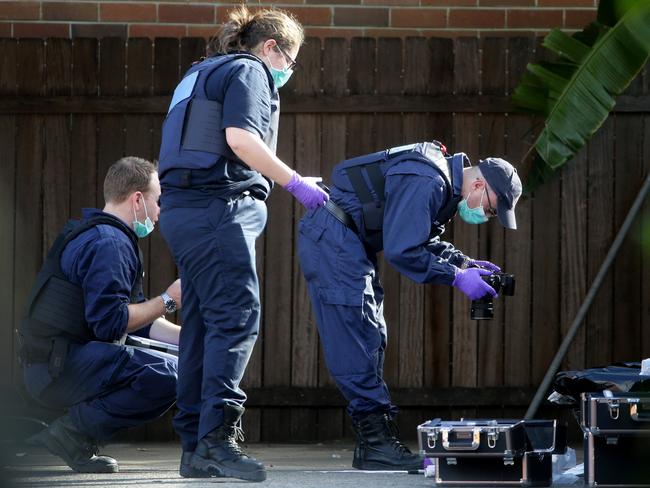
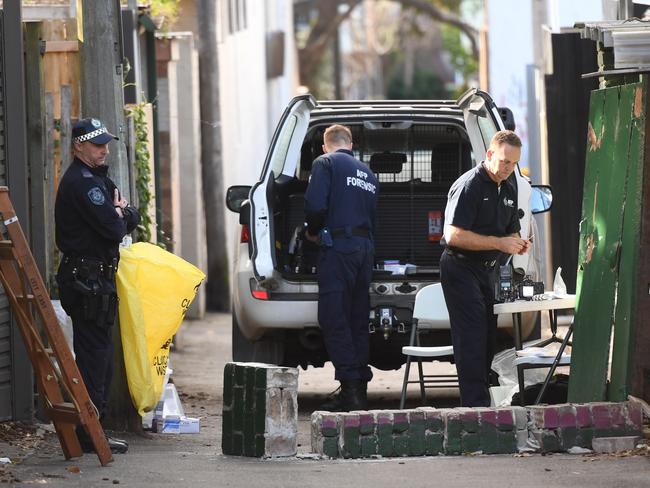
Pendennis spawned some of the most notorious Australian-born terrorists including Khaled Sharrouf, who has taunted the world since fleeing to Syria on his brother’s passport after serving his sentence.
He has paraded his four young sons on social media dressed in battlefield khaki with one of them even holding the decapitated head of a Syrian soldier.
His Sydney mate, former boxer Mohamed Elomar, who is now believed to have been killed in Syria, is the nephew of one of the Pendennis nine, Mohamed Elomar.
Then in 2015, Operation Appleby took Pendennis’s crown as the country’s biggest counter-terrorism operation.
The three-year operation targeted 18 Western Sydney men “willing and able” to carry out an IS order and kill a “nonbeliever” and drape the body in an IS flag.
One of those young men was sending money to Ahmed Merhi in Syria to fund his terrorism.
None of the men arrested last week were the subject of either Pendennis or Appleby. As forensic police and bomb squad officers continue to search some of their homes, Khaled Merhi’s father, Omar Merhi, has spoken out to deny his son is a terrorist.
Omar Merhi has identified Ahmed Merhi as one of his nephews.
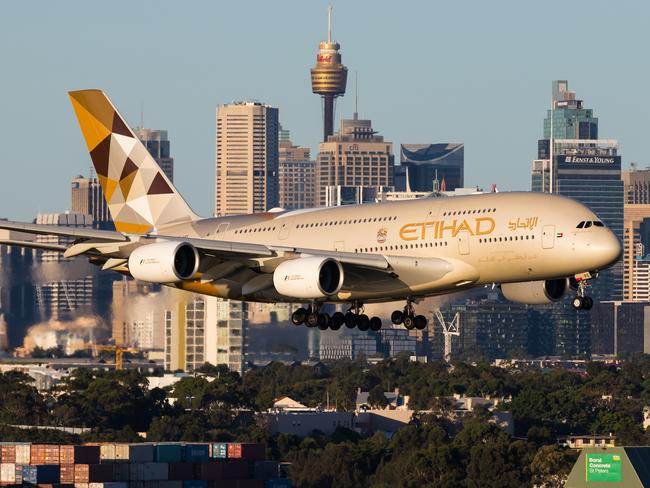
A spray painter, Khaled Merhi lost his job as a van driver the week before his arrest and failed to turn up for work on the Friday at Botany Powder Coaters. His father said that Khaled was the only one of his nine sons who had never married.
He is one of 14 children brought up in their parents’ Cleveland St terrace house, which they bought in 1974 after arriving in Sydney from Beirut in Lebanon.
Khaled Khayet, who had worked as a butcher, is married to one of Khaled Merhi’s five sisters.
Among the items seized by police from the houses are parts of a kitchen mixer, phones, SIM cards, computers and cars, all part of what Prime Minister Malcolm Turnbull has called “very substantial evidence” of a planned attack.


